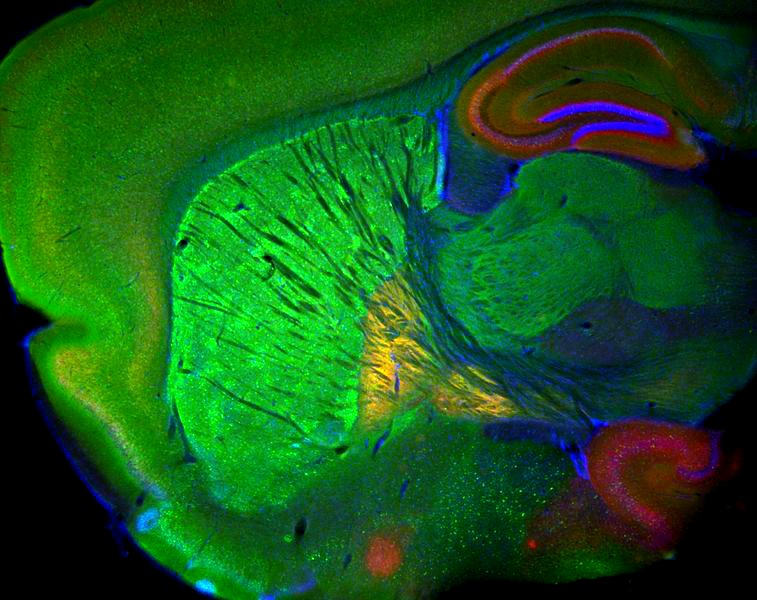Neuroscientists Discover Previously Mysterious Function of Cannabinoid Receptor
According to researchers from the German Center for Neurodegenerative Diseases (DZNE), the cannabinoid Type 2 receptor, also known as a CB2 receptor, plays a vital role in processing brain signals.
Up until this point, the CB2 receptor was considered to be part of the immune system without any nerve cell function. If the research presented in the study “Cannibinoid Type 2 Receptors Mediate A Cell Type-Specific Plasticity in the Hippocampus” is proven accurate, then scientists have made a startling discovery.
The CB2 receptor is a special membrane protein that is part of the endocannabinoid system – a family of receptors and signaling substances that exist in humans and many other organisms. It is involved in the regulation of a number of physiological processes and functions as a “biochemical control system.”
Essentially, chemicals derived from the cannabis plant bind to ECS receptors, hence, the name “cannabinoid receptor.”
Widget not in any sidebars
The researchers demonstrated that the CB2 receptor raises the excitation threshold of nerve cells in the hippocampus. As Dr. Vanessa Stempel, lead author of the study stated,
Operation of the brain critically depends on the fact that nerve impulses sometimes have an exciting impact on downstream cells and in other cases they have a suppressing effect.
The CB2 receptor works like a set screw by which such communication processes can be adjusted.
 There are two known types of cannabinoid receptors: CB1 receptors are related to the mind-altering effects triggered when cannabis is consumed. CB2 receptors have no psychoactive effect.
There are two known types of cannabinoid receptors: CB1 receptors are related to the mind-altering effects triggered when cannabis is consumed. CB2 receptors have no psychoactive effect.
Researchers state that the results of their study might contribute to a greater understanding of disease mechanisms and provide a jump-off point for novel medication.
Professor Schmidts states:
Brain activity is disturbed in schizophrenia, depression, Alzheimer’s disease and other neuro-psychiatric disorders. Pharmaceuticals that bind to the CB2 receptor could possibly influence the activity of brains cells and thus become part of a therapy.
Image: mouse cannabinoid receptor nuclei by National Institutes of Health (NIH) Creator: Margaret I. Davis, Wikimedia Commons
This article (Neuroscientists Discover Previously Mysterious Function of Cannabinoid Receptor) can be republished under a Creative Commons license with attribution to Brandon Turbeville and Natural Blaze.com.
Brandon Turbeville – article archive here – is an author out of Florence, South Carolina. He is the author of six books, Codex Alimentarius — The End of Health Freedom, 7 Real Conspiracies,Five Sense SolutionsandDispatches From a Dissident, volume 1 and volume 2, The Road to Damascus: The Anglo-American Assault on Syria, and The Difference it Makes: 36 Reasons Why Hillary Clinton Should Never Be President. Turbeville has published over 600 articles dealing on a wide variety of subjects including health, economics, government corruption, and civil liberties. Brandon Turbeville’s podcast Truth on The Tracks can be found every Monday night 9 pm EST at UCYTV. He is available for radio and TV interviews. Please contact activistpost (at) gmail.com.



